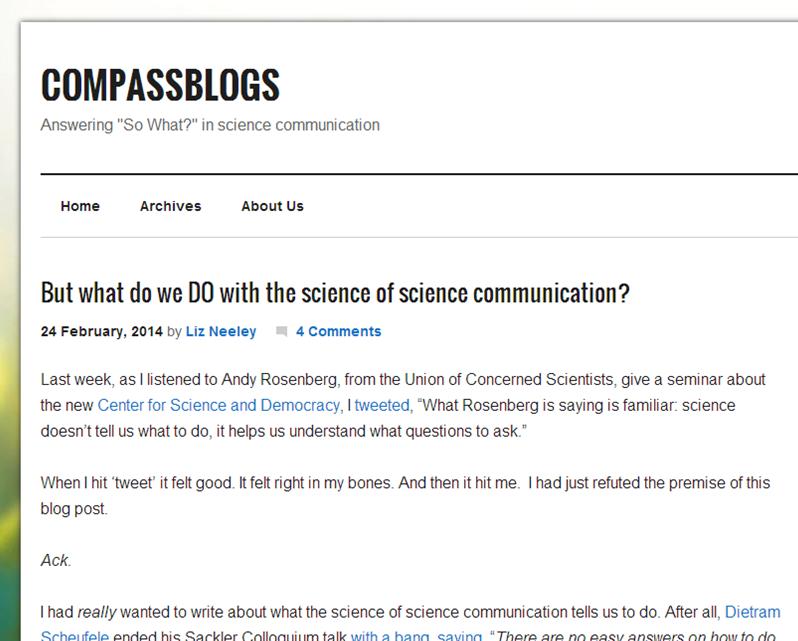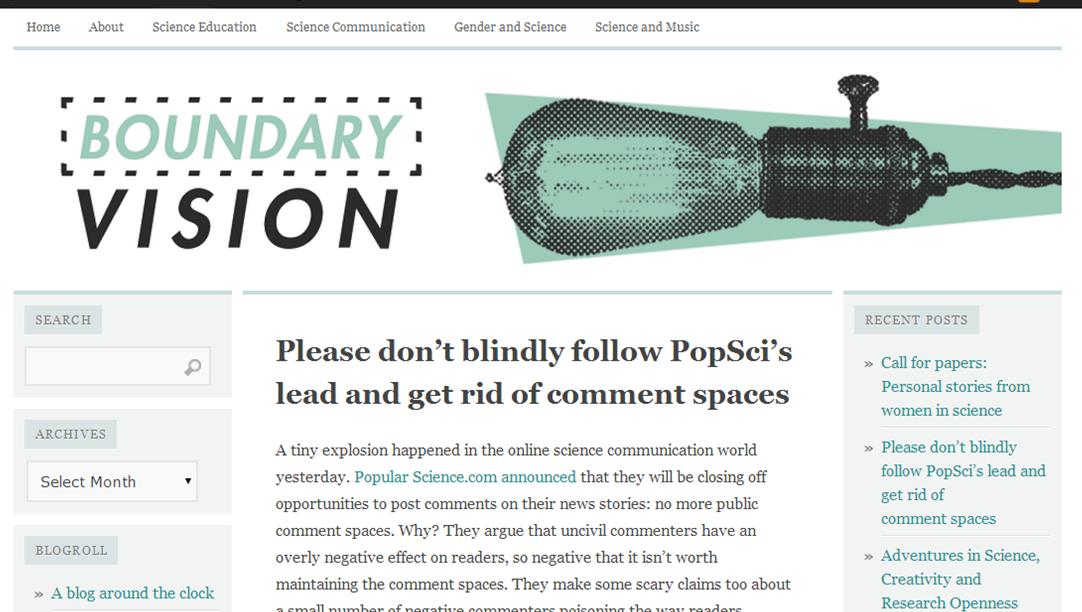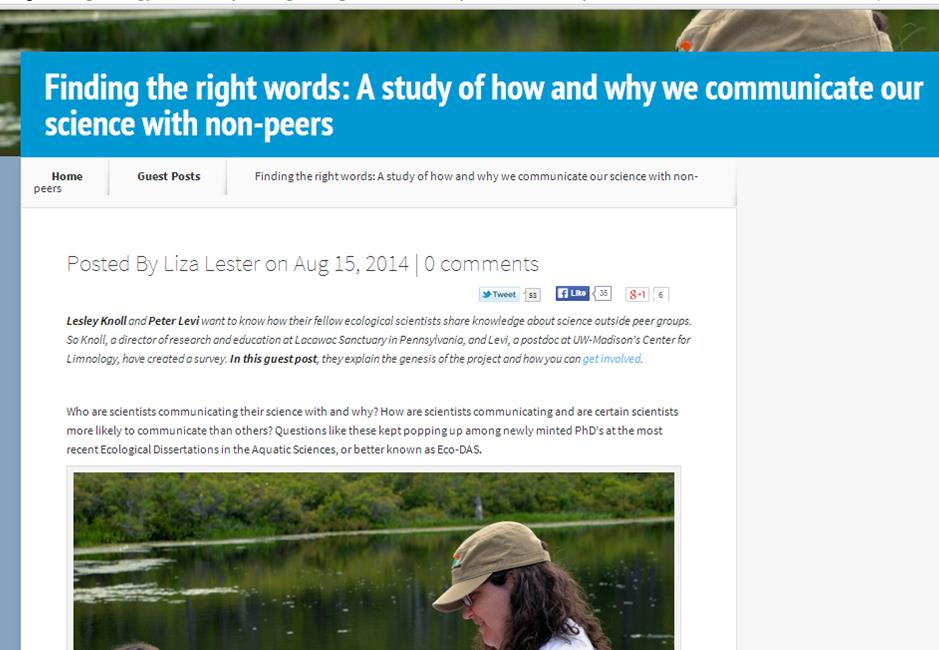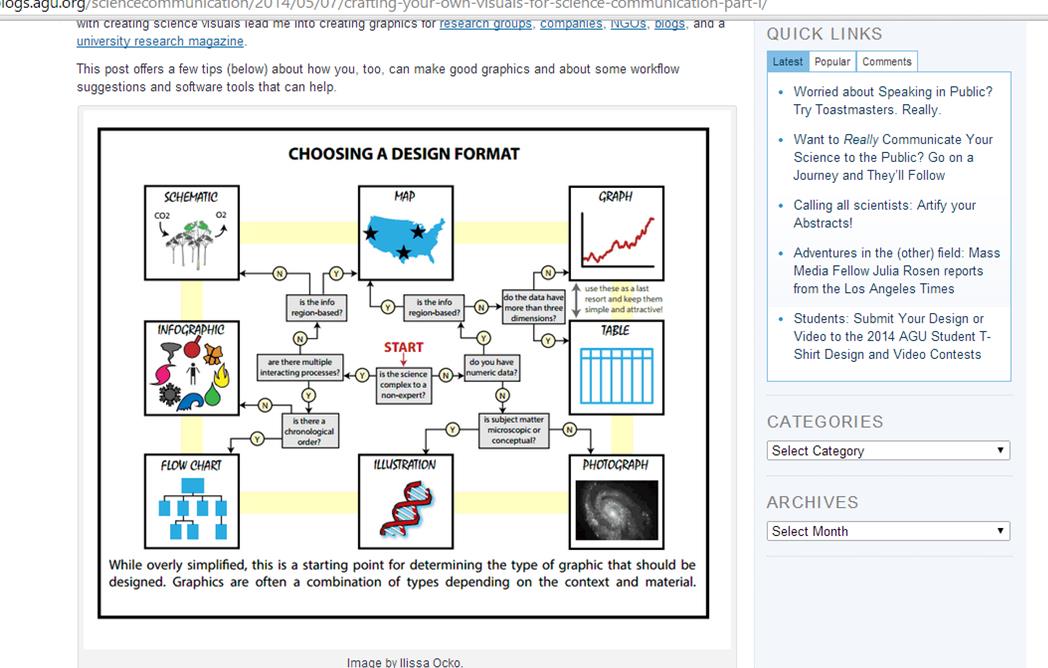6 More SciComm Resources
If you cruised through our SciComm resources and Multimedia SciComm Guide thinking, “Read that. Yep, read that. Read that, too…” here are a few more SciComm resources you can explore. Some are fairly recent, and some are ‘oldies but goodies.’
1. Kirk Englehardt compiles weekly “Best of SciComm” lists…
The week's top #scicomm stories (8.29) http://t.co/mbnCdALODq feat @CommNatural@dirch3 @WhySharksMatter @SnowHydro @cbrainard
— Kirk Englehardt 📸 ◎ (@kirkenglehardt) August 30, 2014
which are distributed via his various social media channels. In addition to this week’s collection, in June 2014 he did a two-part series on the top 100 SciComm stories, with particular emphasis on how to do good SciComm. See part 1 and part 2, or see this week’s round-up by clicking on the tweet above. NB: Some links on these lists might be redundant with those in our Resources section.
2. Liz Neely of COMPASS takes on the ‘science of science communication’ question,
and boils down what we know that is digestible and usable.
Caption from the Bik and Goldstein paper: Figure 2. Flowchart showing a decision tree for scientists who are interested in communicating online. An earlier version of this flowchart appeared in a guest post by MCG in Nature’s Soapbox Science blog (http://goo.gl/AeKjJ). doi:10.1371/journal.pbio.1001535.g002
Their paper is an ‘oldie but a goodie’ from 2013.
4. Marie-Claire Shanahan studies writes about the complexities of SciComm and Science Education.
A pair of timeless posts on her blog Boundary Vision do a particularly good job of exploring just how complex AND rewarding good SciComm can be: When it comes to scientific words, simple is harder than it seems and Why is it so hard to give up on hoping that facts speak for themselves? She also breaks down the nuances of comments sections related to science articles and shares lots of relevant references in Please don’t blindly follow PopSci’s lead and get rid of comment spaces.
5. Finding the right words: A study of how and why we communicate our science with non-peers.
Lesley Knoll and Peter Levi are conducting a study on ecologists, and would like to hear how you communicate science.
6. Ilissa Ocko developed a flow chart to help you decide what kind of design/image will best convey your message.
Click here for a more about Ocko’s flow chart.



